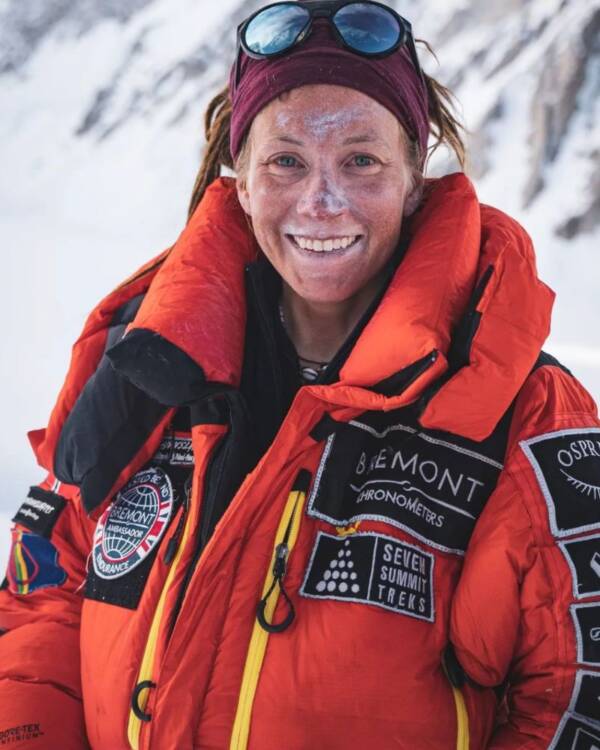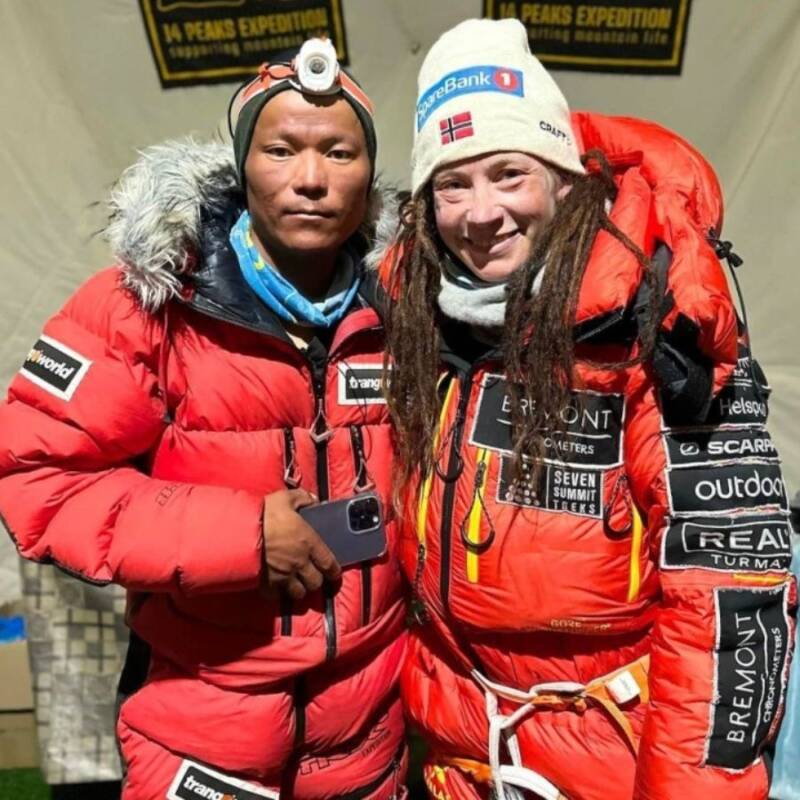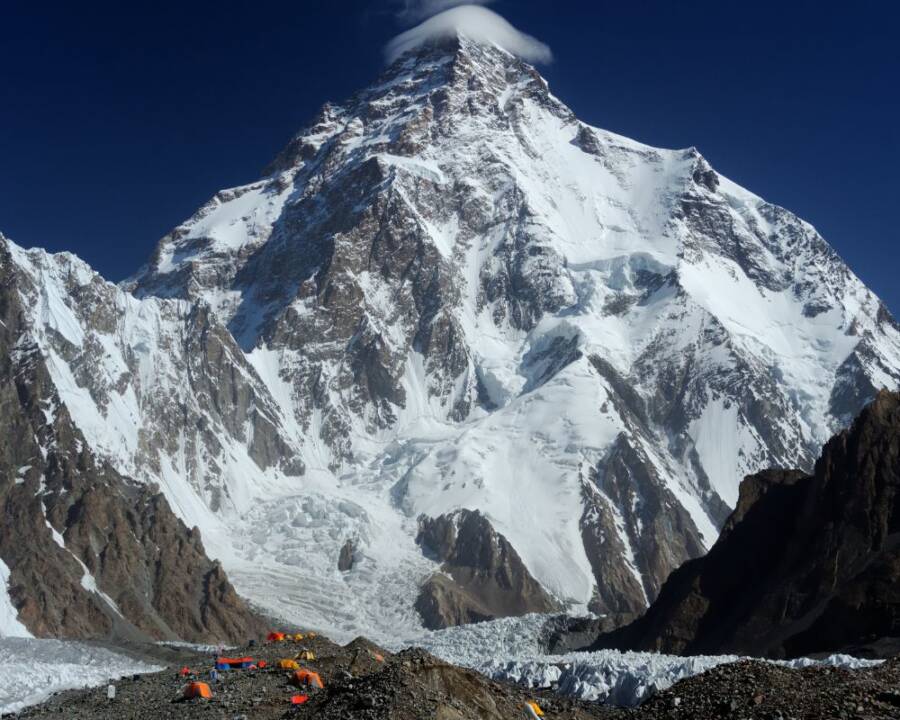"If I'm going to change this sport, the best way I can do it is by showing that women are just as capable as men on these high mountains."
There are 14 mountains on Earth that tower higher than 8,000 meters (26,000 feet). In 2019, Nirmal Purja set a record by climbing all of the aptly-named “8000ers” in six months and six days. Now, a Norwegian woman named Kristin Harila and her guide, Tenjin Sherpa, have smashed that record, reaching all 14 peaks in just three months and one day.

Instagram/Kristin Harila And Tenjin SherpaKristin Harila was a professional cross-country skier before she began climbing mountains.
According to Harila’s official website, she and Tenjin completed their mission on July 27 when they summited Pakistan’s K2 92 days after climbing Shishapangma in Tibet.
Harila, a 37-year-old former professional cross-country skier, is fairly new to mountaineering. Per Outside, she fell in love with the sport after climbing Mount Kilimanjaro in 2015, but it wasn’t until the COVID-19 pandemic that she decided to take on even more challenging peaks.
She told The New York Times that she got the idea while quarantined in a hotel room at the height of the crisis.
“I was stuck in this room, and I couldn’t stop thinking about these 8,000-meter peaks,” she said. “I was thinking: I’m 35, and I really want to climb them all. If I want to do it, I need to do it fast.”
Harila first attempted to summit all 14 peaks in 2022. She completed the first 12, but she was unable to enter China due to travel restrictions, so she couldn’t climb Shishapangma or Cho Oyu, which are located in Tibet.

Twitter/@EverestTodayKristin Harila and Tenjin Sherpa broke the speed record for climbing all 14 mountains that tower higher than 8,000 meters (26,000 feet).
When she finally got access to the two mountains in April 2023, she decided to climb the other 12 again immediately after in an attempt to beat Purja’s record. So once she and Tenjin reached the top of Cho Oyu on May 3, they turned right back around and returned to Makalu I in Nepal, standing atop its peak just 10 days later. Five days after that, they ascended nearby Kangchenjunga.
On May 23, Harila and Tenjin scaled Mount Everest, the tallest mountain in the world. From there, they moved onto the rest of the 8000ers, all 14 of which are located in the Karakoram and Himalayan mountain ranges in Tibet, Nepal, and Pakistan.
Racing to the top of the 8000ers is a relatively new goal in the mountaineering world. According to Smithsonian Magazine, the first person to reach the 14 peaks was Reinhold Messner. It took Messner 16 years, from 1970 to 1986, as he climbed without using supplemental oxygen.
Since then, 53 people have claimed to reach the top of each 8000er, though only four of them — all men — are officially recognized, according to The New York Times. Now, Harila and Tenjin may join their ranks.
Of course, Harila and Tenjin’s accomplishment hasn’t come without criticism. Critics say Harila’s use of helicopters to move supplies and equipment from camp to camp detracts from the achievement, both “for environmental reasons and for undermining employment opportunities in mountain communities,” per Smithsonian Magazine.
As Outside points out, it takes the average climber up to two months and tens of thousands of dollars to reach just one of the 14 peaks. It’s unclear how much Harila spent on achieving her goal, but it’s been reported that her first attempt to climb all 14 mountains in 2022 cost $500,000.

Wikimedia CommonsThe climbers finished their race to summit all 14 “8000ers” at the peak of K2, the second-highest mountain on Earth.
Still, Harila and Tenjin Sherpa, who has been working in the mountains since he was a teenager, look back on their accomplishment with pride.
They faced avalanche conditions, altitude sickness, and losing track of their route over the last three months. According to Harila, K2 — the second-highest mountain in the world behind Everest — was the most challenging to summit. The 28,251-foot peak had “very hard conditions” and “very deep snow,” but Harila and Tenjin emerged victorious in the end.
“I don’t think those of us outside of the climbing community fully understand the breadth of what she has accomplished,” Harila’s father said. “I couldn’t be more proud of her.”
After reading about the climbers who broke the record for climbing the world’s 14 highest peaks, go inside the inspiring story of Yuichiro Miura, the oldest person to climb Mount Everest. Then, learn about the Seven Summits, the highest mountain peak on each continent.





